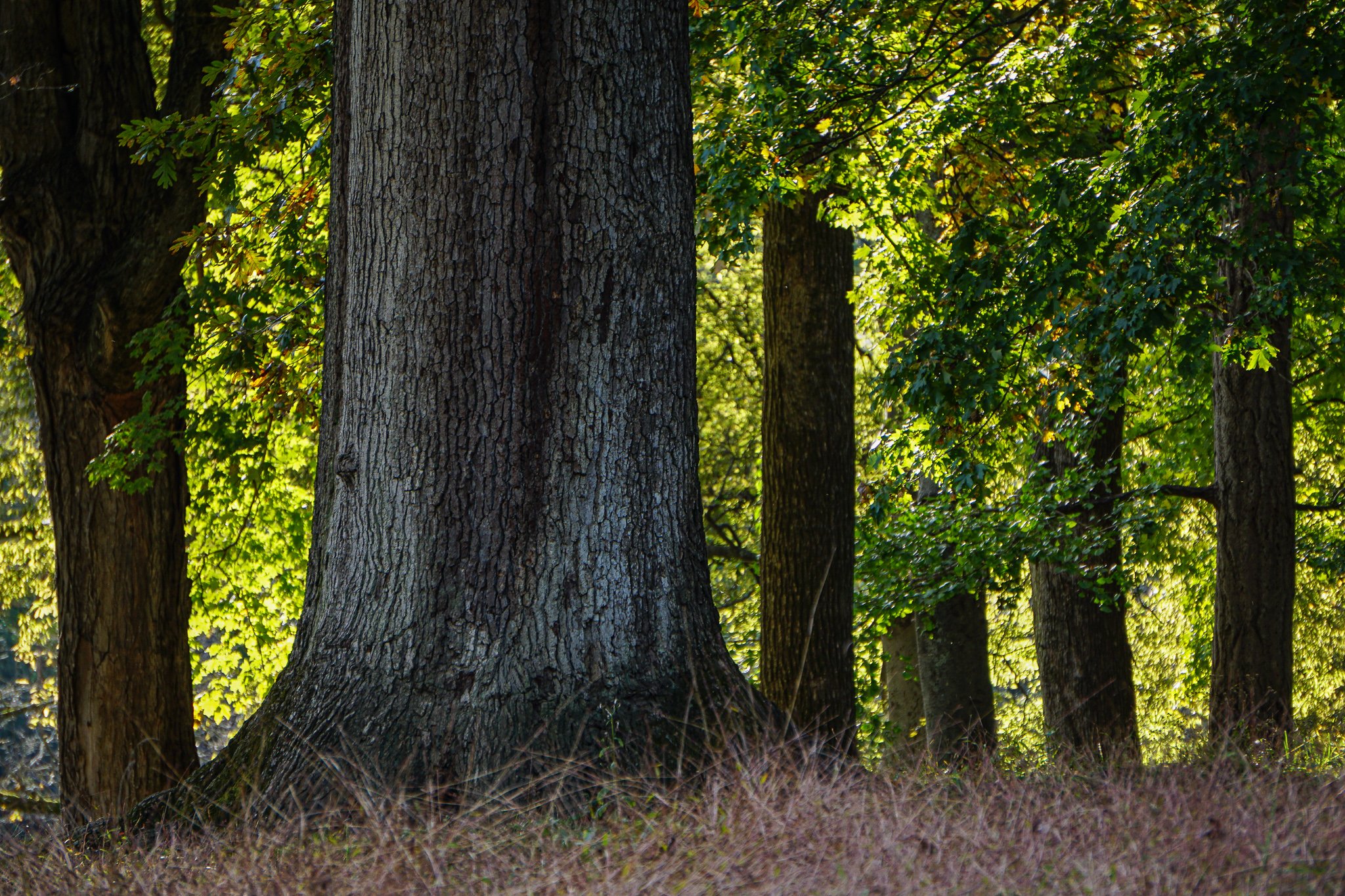Restore the Forest: Invasive Plant Removal
Shelby Park and Bottoms has an invasive plant species problem. We have initiated efforts to remove these harmful plants from our forests and would love to involve you in this important work! See below for information on volunteer events and invasive species.
Looking down the path from Cave Spring - everything bushy and green is invasive
Our Progress so Far:
Click here for an interactive invasive removal map
Each color block represents the area cleared at a particular volunteer event. To date, we have removed invasive plants from about 7 acres of forest and planted over 200 native tree seedlings, including oak, maple, tulip poplar, and dogwood!
What is an invasive species?
It is a species that is introduced to habitats where it is not native and harms the environment, human health, or the economy. In Shelby Park and Bottoms, a few species in particular have spread and pose a serious threat to the health of the park’s ecosystems (and natural beauty). The main species of concern are privet, bush honeysuckle, and tree of heaven. For, further reading, check out this link.
Why are we removing invasive species?
Removing invasive species is the first step in restoring the ecosystems they have ravaged. Once invasive plants are eradicated, we can replace them with many different native plant species. This process helps restore the diversity, resilience, and beauty of our wild spaces.
How can you help?
You can attend a volunteer event or sign up to serve as an Invasive Removal Crew Leader. At Restore the Forest volunteer events, we remove invasive plants and occasionally plant seedlings.
Volunteer Opportunities:
- Invasive Removal Crew Leader - learn more about becoming a crew leader by contacting CD (click here to send them an email)!
- Invasive Plant Removal Projects - new dates will be scheduled in fall and winter 2024, and will be posted to our Volunteer page here.
A healthier patch of forest on the south side of Beech Grove Hill - note the clear understory beneath mature native trees
Helpful Links:
Invasive Species Basics:
Protect Tennessee Forests (Tennessee Government): Invasive Plants
National Parks Service: Invasive & Non-Native Species (has a great video!)
Advocacy:
NAISMA: National Invasive Species Awareness Week (Feb. 24-28, 2025)
Weed Wrangle: March 1st, 2025



